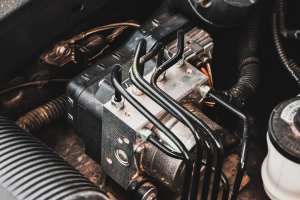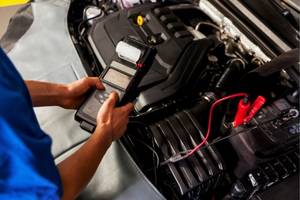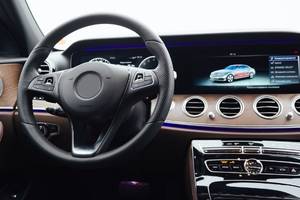Introduction
Imagine embarking on a long road trip, your BMW gliding smoothly as your favorite song plays through the speakers. But suddenly, the engine light flickers, and you're left wondering what could be wrong. This is where understanding your BMW's engine computer, or Engine Control Unit (ECU), becomes necessary. The ECU is the advanced brain behind your BMW's engine, managing everything from performance to fuel efficiency. By diving right into the workings of this important component, you can better appreciate how it keeps your vehicle running ideally and what you can do to maintain it.
1. BMW Engine Computers: An Overview
BMW engine computers, also known as Engine Control Units (ECUs), are the heart and brain of your BMW's engine. This small, advanced device is responsible for managing the performance and effectiveness of your engine.
The BMW engine computer monitors numerous sensors located in the engine bay, translating the data collected into performance parameters. It's like the conductor of an orchestra, carefully adjusting the timing, fuel injection, and other important aspects to make sure the smooth operation of your engine.
What's remarkable about the BMW engine computer is its ability to learn and adapt. It adjusts the engine's parameters based on your driving habits and conditions. Whether you're speeding down a highway or going through a busy city street, your BMW's ECU is constantly learning and adjusting to give you a smooth, efficient ride.
But there's a catch. Just like any other computer, your BMW engine computer requires regular maintenance to function at its best. Without regular checks and updates, your ECU could start misfiring, leading to poor performance or even damage to your BMW's engine.
Now, you might be thinking, "How do I maintain my BMW engine computer?" Well, don't worry. We'll get to that in the later sections. For now, let's dive in deeper into the features of the BMW engine computer.
2. Features of BMW Engine Computers
The BMW engine computer is not just an ordinary piece of machinery. It's packed with features that makes your BMW not only a beast on the road but also an efficient and dependent machine. Let's take a closer look at some of these features.
Adaptive Learning
Remember when we said that your BMW engine computer learns and adapts? This feature, known as adaptive learning, allows your BMW to adjust its performance based on your driving habits and conditions. It's like your BMW gently learns your style, whether you're a fast and furious driver or a calm and collected one, and adjusts its performance to match.
Real-Time Monitoring
The BMW engine computer is constantly checking and simplifying the data from a lot of sensors. These sensors monitor everything from engine temperature and speed to oxygen levels and fuel mixture. This real-time monitoring allows the ECU to quickly detect any issues and adjust the performance parameters accordingly.
Diagnostic Functions
One of the standout features of the BMW engine computer is its built-in diagnostic capabilities. Whenever there's an issue with your engine, the ECU picks it up and triggers a warning light on your dashboard. It also stores a fault code that can be read with a diagnostic tool, giving you detailed information about the problem. This feature can save you a lot of time and money in diagnosing engine issues.
Fuel Efficiency
The BMW engine computer also plays an important role in improving your car's fuel efficiency. By adjusting the timing and amount of fuel injection, the ECU can help you get the most out of each gallon of gas.
Finally, for those who like to push their BMW to the limit, the BMW engine computer allows for performance tuning. By modifying the ECU's software, you can potentially increase horsepower, force, and overall engine performance. However, this should be done by a professional to avoid any damage to the engine.
Now that we've covered the features, let's move on to understanding the function of the BMW engine computer.
3. Function of BMW Engine Computers
As we shift gears from features to function, we'll dive right into the role that the BMW engine computer, or ECU (Engine Control Unit) plays in the overall performance and efficiency of your BMW.
The Brain of the Operation
Think of the ECU as the brain of your BMW. Just as your brain controls and coordinates all bodily functions, the BMW engine computer is responsible for managing and improving all aspects of your car's engine performance. It's constantly receiving, processing, and responding to information from numerous sensors in the engine, making split-second decisions to makeing sure the performance is optimal.
The Conductor of the Symphony
Imagine your BMW engine as a grand symphony. Each component - the fuel injectors, spark plugs, throttle body, and others - is like a musical instrument. The BMW engine computer acts as the conductor, coordinating all these instruments to play together perfectly. It adjusts the timing and amount of fuel injection, the ignition timing, and the air-fuel mixture to create a melodious and efficient performance.
The Guardian Angel
The BMW engine computer also acts as a guardian angel for your engine. By constantly observing engine conditions and adjusting performance framework, the ECU helps prevent damage and extend the life of your engine. In case of a problem, it triggers a warning light on your dashboard and stores a fault code that can be read with a diagnostic tool, helping you address the issue before it becomes a major problem.
The Power Broker
For those of you who like to push your BMW to the limit, the BMW engine computer is your best ally. Through performance tuning, you can adjust the ECU's software to increase horsepower, force, and overall engine performance. But remember, this is not a DIY job—always seek professional assistance for ECU syncing to avoid damaging your engine.
Now that we've understood the function of the BMW engine computer, let's move on to some useful maintenance tips. Remember, a well-maintained ECU equals a well-performing BMW!
4. Maintenance Tips for BMW Engine Computers
You've got the lowdown on what a BMW engine computer does. Now it's time to talk about how to keep this important component in top shape. Here are some practical maintenance tips to help you get the most out of your ECU.
Keep It Clean
The first rule of maintenance is cleanliness. Dust and dirt can interfere with the functioning of the BMW engine computer. Regularly schedule a good cleaning of the ECU and its surrounding area. However, remember that ECU is delicate. It's best to have a professional do this.
Regular Diagnostics
Just like you get a regular check-up, your BMW engine computer needs one too. Regular diagnostic checks can identify any possible issues before they turn into major problems. A professional mechanic can use a diagnostic tool to read any fault codes stored by the ECU and take corrective action.
Watch for Warning Signs
Your ECU communicates with you through warning lights on your dashboard. If you notice any unusual lights, don't ignore them. They could be your BMW engine computer telling you there's a problem. Speak to a professional mechanic to get things checked out.
Keep Software Up-to-Date
Just like your smartphone, the software in your BMW engine computer needs to be updated regularly to make sure smooth performance. These updates often include improvements to engine performance and efficiency. Again, it's best to have these updates done by a professional to avoid any complications.
Reboot Responsibly
Sometimes, your ECU might need a reboot, especially after a software update or if it's been behaving weirdly. But don't just disconnect the battery. This could lead to data loss in the BMW engine computer. Instead, have a professional do a proper ECU reset.
Remember, a little care goes a long way. Regular maintenance of your BMW engine computer can keep your car running smoothly and efficiently for years to come. Happy driving!
Conclusion
Your BMW’s engine computer is a marvel of modern automotive engineering, orchestrating the harmony between performance, efficiency, and reliability. By understanding its features, functions, and maintenance needs, you can make sure that your vehicle continues to perform at its best. Regular upkeep and awareness of your ECU’s health can prevent minor issues from becoming major problems, ultimately improving your driving experience. Keep these tips in mind, and your BMW will remain a reliable companion on all your journeys.
FAQs on
Comprehensive Guide to BMW Engine Computers in 2025 : Features, Function & Maintenance Tips
-
1. What is a BMW engine computer and what does it do?
Ans.
A BMW engine computer, or Engine Control Unit (ECU), is an advanced device that manages your engine's performance. It controls sensors, adjusts fuel injection, timing, and other parameters to ensure smooth engine operation and optimal performance.
-
2. How does the BMW engine computer adapt to different driving conditions?
Ans.
The ECU uses a feature called adaptive learning to adjust engine parameters based on your driving habits and conditions. It learns from your driving style and adjusts performance accordingly, whether you're driving aggressively or calmly.
-
3. What should I do if my BMW's engine light comes on?
Ans.
If the engine light turns on, it's a signal from the ECU indicating a possible issue. You should have your vehicle checked by a professional mechanic who can use diagnostic tools to read fault codes and identify the problem.
-
4. How can I maintain my BMW engine computer?
Ans.
To maintain your BMW engine computer, keep it clean, schedule regular diagnostic checks, watch for warning signs on your dashboard, make sure the software is up-to-date, and only reboot the ECU through professional service to avoid data loss.
-
5. Can I perform ECU tuning myself?
Ans.
While ECU tuning can improve performance, it should be done by a professional. Incorrect tuning can damage your engine. Seek professional assistance to make sure safe and effective performance adjustments.
-
6. Why is it important to update the ECU software regularly?
Ans.
Regular updates to the ECU software can improve engine performance and efficiency. These updates often fix bugs and improve functionality, helping your vehicle run more smoothly. It's best to have updates performed by a professional to avoid complications.


